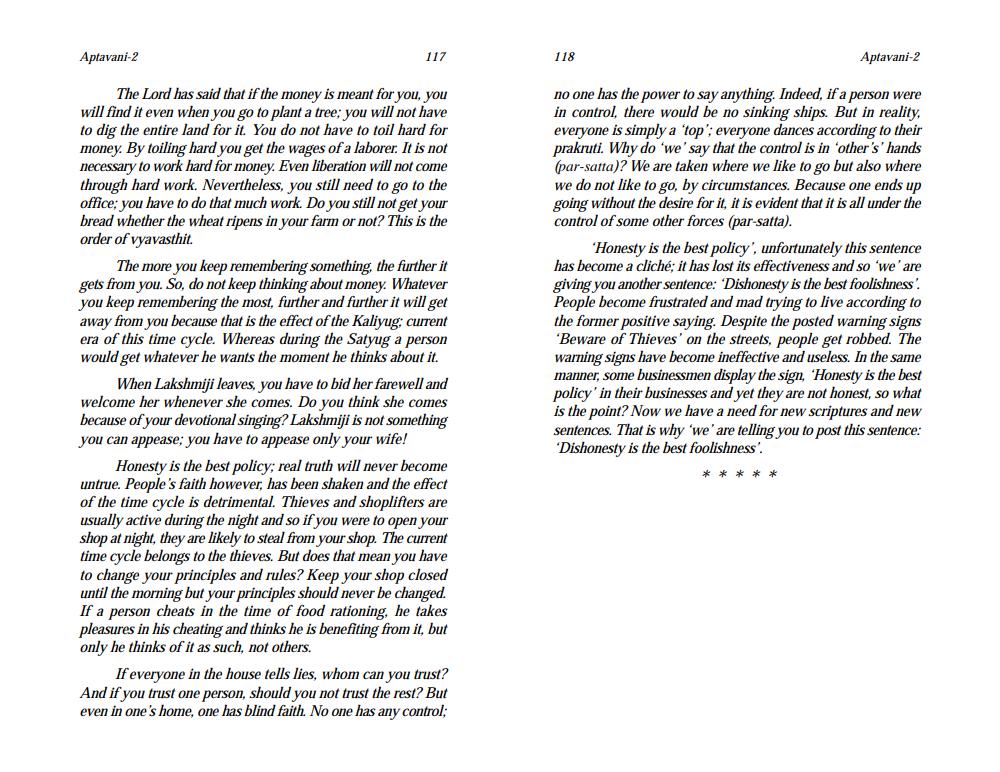________________
Aptavani-2
117
118
Aptavani-2
The Lord has said that if the money is meant for you, you will find it even when you go to plant a tree: you will not have to dig the entire land for it. You do not have to toil hard for money. By toiling hard you get the wages of a laborer. It is not necessary to work hard for money. Even liberation will not come through hard work. Nevertheless, you still need to go to the office: you have to do that much work. Do you still not get your bread whether the wheat ripens in your farm or not? This is the order of vyavasthit.
The more you keep remembering something the further it gets from you. So, do not keep thinking about money. Whatever you keep remembering the most further and further it will get away from you because that is the effect of the Kaliyug: current era of this time cycle. Whereas during the Satyug a person would get whatever he wants the moment he thinks about it.
When Lakshmiji leaves, you have to bid her farewell and welcome her whenever she comes. Do you think she comes because of your devotional singing? Lakshmiji is not something you can appease; you have to appease only your wife!
Honesty is the best policy, real truth will never become untrue. People's faith however, has been shaken and the effect of the time cycle is detrimental. Thieves and shoplifters are usually active during the night and so if you were to open your shop at night, they are likely to steal from your shop. The current time cycle belongs to the thieves. But does that mean you have to change your principles and rules? Keep your shop closed until the morning but your principles should never be changed. If a person cheats in the time of food rationing, he takes pleasures in his cheating and thinks he is benefiting from it, but only he thinks of it as such, not others.
If everyone in the house tells lies, whom can you trust? And if you trust one person, should you not trust the rest? But even in one's home, one has blind faith No one has any control;
no one has the power to say anything. Indeed, if a person were in control, there would be no sinking ships. But in reality, everyone is simply a 'top'; everyone dances according to their prakruti. Why do we say that the control is in 'other's' hands (par-satta)? We are taken where we like to go but also where we do not like to go, by circumstances. Because one ends up going without the desire for it, it is evident that it is all under the control of some other forces (par-satta).
Honesty is the best policy', unfortunately this sentence has become a cliché, it has lost its effectiveness and so 'we are giving you another sentence: 'Dishonesty is the best foolishness! People become frustrated and mad trying to live according to the former positive saying. Despite the posted warning signs 'Beware of Thieves' on the streets, people get robbed. The warning signs have become ineffective and useless. In the same manner, some businessmen display the sign, 'Honesty is the best policy' in their businesses and yet they are not honest, so what is the point? Now we have a need for new scriptures and new sentences. That is why 'we' are telling you to post this sentence: 'Dishonesty is the best foolishness'.
*
*
*
*
*




